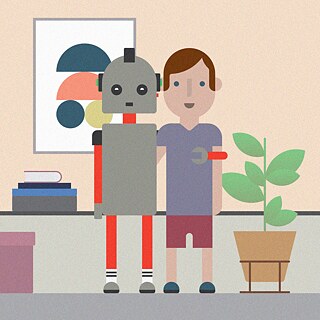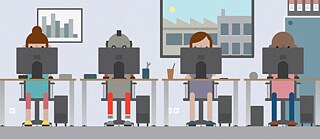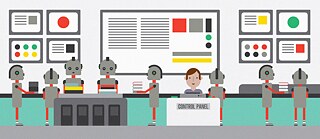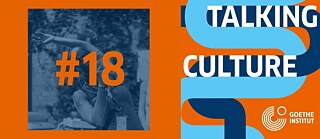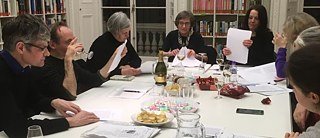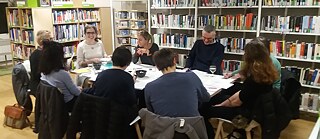Online Discussion – Translators: Robots in Disguise?
We take a glimpse into the future of literary translation in view of developments in Artificial Intelligence (AI). Our panel of experts addressed questions such as:
Which recent developments make the translation of literature by AI more feasible?
Can human creativity and sensitivity in interpreting literary texts be matched, or even surpassed by AI?
Does AI pose a threat to the future existence of literary translators, or could new online translation tools lead to significant changes in the way human translators work?
Host: translator Katy Derbyshire
Participants:
- Duncan Large, Academic Director of the British Centre of Literary Translation at the University of East Anglia
- Lucia Specia, Chair in Natural Language Processing at Imperial College London.
How close does machine translation get to human translators?
Professor Lucia Specia is an expert on language technology, natural language processing and machine translation at Imperial College London.
She talked to us about the latest technological advancements in A.I. and translation, and how human translators can team up with machines to improve their work.
The interview was conducted by Priyanka Dasgupta.
Interview questions:
0:53 - What has been the advantage of machine translation over human translation, historically?
7:02 - How easy or tough is it for machines to achieve good quality literary translation?
9:40 - How far are we from getting exact literary translations using machines?
14:15 - How can this technology help the publishing industry?
17:27 - Will using machines reduce errors in translation in comparison to human scope for error?
21:13 - Is the gap between human and machine translation getting smaller than ever?
24:17 - Do you have any examples of particularly good literary translations using machines?
25:46 - What would be the financial implication of growing technology on the publishing industry?
30:42 - How do you see human and machine translation co-existing in the coming years?
![]()
![]()
